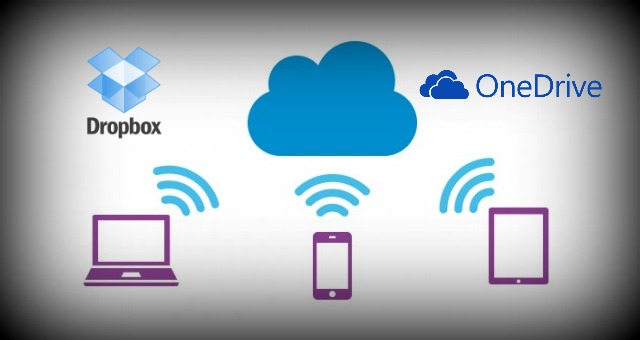Do you use cloud storage? No, I’m not talking about balloons or airplanes or that cool flying aircraft carrier from The Avengers. I’m talking about cloud (or network) based storage. I have been using several cloud storage services for quite a while. I have my favorite (we’ll get to that in a minute) but I’m always open to finding a better service.
First, why cloud storage? There are several reasons why people use cloud storage. I many different devices: a couple of laptops, two desktops, a smartphone, iPad, Nook Tablet, Android tablet, and a Windows Tablet. Wow, that’s way too many devices…but that’s another article. The point is, I like being able to access my files from any device. Also, I like having the security that my files are safe if all of my devices happen to die (not sure what kind of mass event must happen for all of them to go). I can feel confident that my files are safe regardless of the condition of my devices.
Now, I know what you’re saying..what about security? That’s a valid concern. But, as long as you choose a reputable company, you should have reasonable confidence that you are covered. With that said, I still keep very valuable (private) documents on an external hard drive safely tucked away in a fire safe. In today’s society we place a certain amount of trust in companies to keep our data secure. This may or may not be wise…but I don’t have a problem with it.
So, with all of the services changes in the big cloud service providers I thought I’d look at a few of them and point out the details and do a quick comparison.
Dropbox is currently my primary cloud storage service. Dropbox has set itself up as one of the most popular services due to their excellent file sync capabilities. I use Dropbox to store my Quicken data file so I can access it from multiple computers. I do the same for my Visual Studio projects. The convenience of having those files available to multiple machines makes life much easier when working on a project.
Dropbox gives you 2GB of storage space for free but you can earn additional space by sharing with your friends and by enabling camera upload. I currently have 11.4 GB of space on my free account. If you want to upgrade, you can get 1TB of space and additional features such as remote wipe for $9.99/month. Dropbox also has a business option which offers unlimited space and business features for $15/month per user.
OneDrive from Microsoft is currently my secondary cloud storage service. However I feel like OneDrive may be taking over the primary spot very soon. Like Dropbox, OneDrive has a free account but OneDrive gives you 15GB for free. You also have the ability to earn free space by referring friends and doing other things. I currently have 216GB because OneDrive gave me 100GB for joining Bing Rewards and 100GB because I’m a Dropbox customer. Microsoft is squarely targeting Dropbox with this latest move. The 100GB from Bing Rewards is good for 2 years and the 100GB for being a Dropbox customer is good for 1 year.
You can upgrade to 100GB for $1.99/month, 200GB for $3.99/month, and 1TB for $6.99/month. Here’s the game changer for me….the $6.99 plan includes Office365. This means you get web based Microsoft Office, and full installs of Office apps for 1 computer plus 1TB of OneDrive storage. I use MS Office everyday so this plan would be beneficial in many ways.
Conclusion
I think this comes down to one thing….do you use Microsoft Office? If you use Office and you want to continue using it then OneDrive is the obvious choice for your cloud storage needs. However, if you aren’t stuck on Office and it isn’t important to you then Dropbox is a viable alternative. It’s important to note that Dropbox is still more expensive than OneDrive. I think that if Dropbox wants to compete with OneDrive they will eventually have to offer more space or drop their cost.
As for me, I will continue to use both. I’ll be paying for one of them in the next year…I still haven’t settled on which. Anyone currently use either? I’d love you hear your opinion. Leave a comment below.




We cannot trust cloud too much. Binfer bypasses cloud storage servers. This is the best way to send secure files. About direct file sharing.